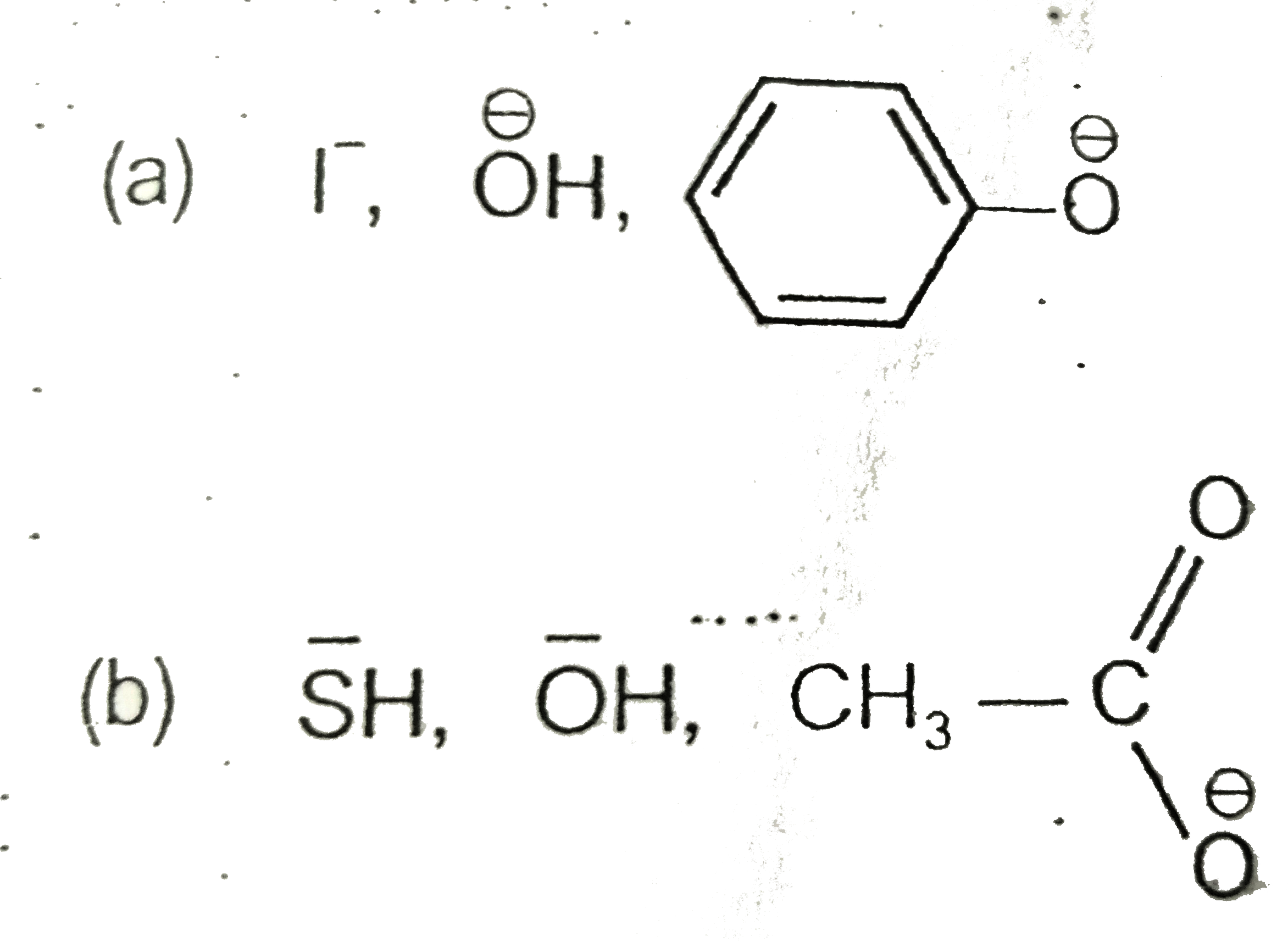Cyanide ion acts as an ambident nucleophille. From which end it acts as a strong nucleophile in aqueous medium? Give reason for your answer.
It act as a stronger nucleophile from carbon end.
It acts as a stronger nucleophile from nitrogen end.
It depends on the nature of the alkyl halide.
It has same strength from both the ends.
The correct Answer is:A
To determine from which end the cyanide ion (CN⁻) acts as a stronger nucleophile in an aqueous medium, we need to analyze the structure and properties of the cyanide ion.
1. Understanding the Cyanide Ion: The cyanide ion consists of a carbon atom triple-bonded to a nitrogen atom (C≡N). This gives it two potential nucleophilic sites: the carbon atom (C) and the nitrogen atom (N).
2. Nucleophilicity: A nucleophile is a species that donates an electron pair to form a chemical bond. The strength of a nucleophile is influenced by its ability to donate electrons.
3. Comparison of Nucleophilic Sites:
- Carbon End: When the cyanide ion acts as a nucleophile from the carbon end, it forms a carbon-carbon (C-C) bond with the electrophile. This bond is typically stronger due to the similarity of the atoms involved (both being carbon).
- Nitrogen End: If the cyanide ion acts from the nitrogen end, it forms a carbon-nitrogen (C-N) bond. While this bond is also stable, it is generally weaker than a C-C bond due to the difference in electronegativity between carbon and nitrogen.
4. Effect of Aqueous Medium: In an aqueous medium, the solvent can stabilize charged species. However, the intrinsic nucleophilicity of the cyanide ion remains more pronounced from the carbon end because the C-C bond formation is more favorable.
5. Conclusion: Therefore, the cyanide ion acts as a stronger nucleophile from the carbon end in aqueous medium. This is because the formation of a C-C bond is more stable and energetically favorable compared to the formation of a C-N bond.
Final Answer:
The cyanide ion acts as a stronger nucleophile from the carbon end in aqueous medium due to the formation of a stronger and more stable carbon-carbon bond compared to a carbon-nitrogen bond.
---
- Carbon End: When the cyanide ion acts as a nucleophile from the carbon end, it forms a carbon-carbon (C-C) bond with the electrophile. This bond is typically stronger due to the similarity of the atoms involved (both being carbon).
- Nitrogen End: If the cyanide ion acts from the nitrogen end, it forms a carbon-nitrogen (C-N) bond. While this bond is also stable, it is generally weaker than a C-C bond due to the difference in electronegativity between carbon and nitrogen.
The cyanide ion acts as a stronger nucleophile from the carbon end in aqueous medium due to the formation of a stronger and more stable carbon-carbon bond compared to a carbon-nitrogen bond.
Topper's Solved these Questions
- HALOALKANES AND HALOARENESBOOK - NCERT FINGERTPS ENGLISHCHAPTER - HALOALKANES AND HALOARENESEXERCISE - Higher order thinking skills
8 Videos
- HALOALKANES AND HALOARENESBOOK - NCERT FINGERTPS ENGLISHCHAPTER - HALOALKANES AND HALOARENESEXERCISE - Exemplar problems
24 Videos
- HALOALKANES AND HALOARENESBOOK - NCERT FINGERTPS ENGLISHCHAPTER - HALOALKANES AND HALOARENESEXERCISE - Physical properties
7 Videos
- GENERAL PRINCIPLES AND PROCESSES OF ISOLATION OF ELEMENTSBOOK - NCERT FINGERTPS ENGLISHCHAPTER - GENERAL PRINCIPLES AND PROCESSES OF ISOLATION OF ELEMENTSEXERCISE - Assertion And Reason
15 Videos
- POLYMERS BOOK - NCERT FINGERTPS ENGLISHCHAPTER - POLYMERS EXERCISE - NCERT Exemplar
9 Videos
Similar Questions
Knowledge Check
Which of the following acts as a nucleophile?
ACH3NH2B+CH3CAlCl3DCH3MgBr.
In which medium the speed of sound is more : humid air or dry air ? Give a reason to your answer.
View SolutionHow would the sky appear when seen from the space (or moon)? Give reason for your answer.
View SolutionIn the following figures, which wave has a higher pitch? Give reason for your answer.

View SolutionTwo equal and opposite forces act on a stationary body. Will the body move ? Give reason to your answer.
View SolutionName a material which is used for making a standard resistor. Give a reason for your answer.
View SolutionAccount for the fact that cyanide ion is an ambident nucleophile
View SolutionWhich term of the AP : 21, 18, 15,... is −81? Also, is any term 0? Give reason for your answer.
View Solution

